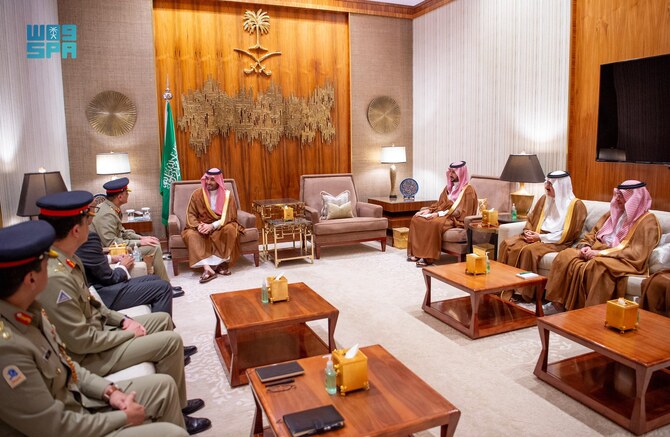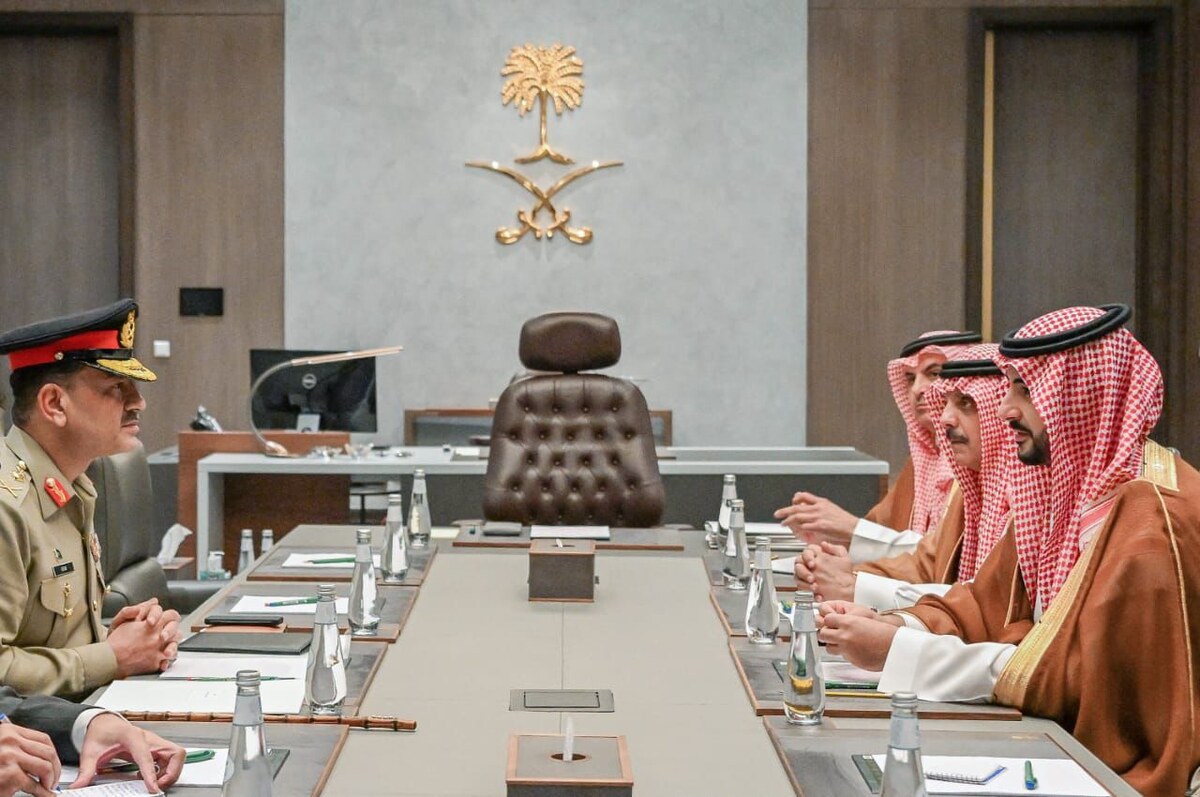ISLAMABAD: Pakistan Army Chief General Asim Munir met Saudi Crown Prince Mohammed bin Salman on Wednesday to discuss issues of common interest such as regional peace, bilateral defense and security cooperation, the military said.
The development takes place after Prime Minister Shehbaz SharifŌĆÖs meeting with Crown Prince Mohammed bin Salman last week during his two-day visit to the Kingdom. The two leaders discussed bilateral economic ties and regional developments, with Sharif apprising the crown prince that the Kingdom had a ŌĆ£central roleŌĆØ to play in PakistanŌĆÖs ŌĆ£future economic plans.ŌĆØ
In October, Pakistani and Saudi businesses signed 27 agreements and memorandums of understanding valued at $2.2 billion. During SharifŌĆÖs visit to the Kingdom last week, the two countries agreed to increase this figure to $2.8 billion.
Munir, who is currently on an official visit to the Kingdom, met the Saudi crown prince at the Royal Palace in Riyadh, the Inter-Services Public Relations, (ISPR) the militaryŌĆÖs media wing, said in a statement.
ŌĆ£The two dignitaries engaged in a comprehensive discussion on a range of issues of mutual interest, including regional peace, defense and security cooperation, and strategies for enhancing bilateral relations,ŌĆØ the ISPR said.

In this handout photograph, released by the Saudi Press Agency on November 6, 2024, Pakistan Army Chief General Syed Asim Munir meets Saudi Crown Prince Mohammed bin Salman in Riyadh. (SPA)
The armyŌĆÖs media wing said Munir expressed his gratitude to the Saudi crown prince for his ŌĆ£steadfast support for Pakistan,ŌĆØ acknowledging his role in fostering peace and stability across the region.
Their meeting also takes place amid a surge in regional tensions following IsraelŌĆÖs military campaigns in Palestine and Lebanon, and its missile attack on Iran last month.
Munir also separately met ║┌┴Ž╔ńŪ°ŌĆÖs Defense Minister Prince Khalid Bin Salman, the ISPR said, adding that the two vowed to further strengthen cooperation in the defense and security domains.

In this handout photograph, released by PakistanŌĆÖs Inter-Services Public Relations (ISPR) on November 6, 2024, Pakistan Army Chief General Syed Asim Munir meets ║┌┴Ž╔ńŪ°ŌĆÖs Defense Minister Prince Khalid Bin Salman in Riyadh. (Photo courtesy: ISPR)
The Pakistan army chief also held meetings with ║┌┴Ž╔ńŪ°ŌĆÖs assistant minister of defense, air chief, chief of general staff of the Royal Saudi Armed Forces and chief of Royal Saudi Land Forces, the ISPR said.
Pakistan and ║┌┴Ž╔ńŪ° enjoy cordial ties rooted in shared history, culture, faith and economic ties. The Kingdom is the top source of workersŌĆÖ remittances for Pakistan, crucial for Islamabad to help keep its $350 billion economy afloat.
║┌┴Ž╔ńŪ° has often come to cash-strapped PakistanŌĆÖs aid, bailing it out of its prolonged economic crisis through debt rollers and by providing it oil on deferred payments.
















